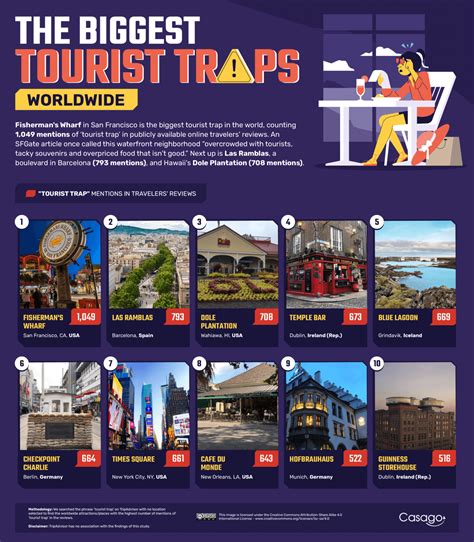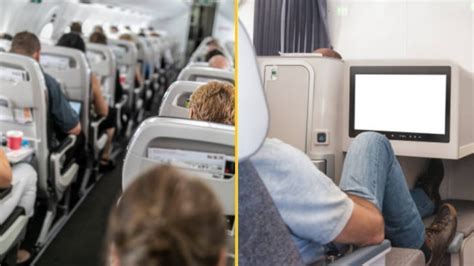
A U.S. tourist visiting Mykonos, Greece, fell victim to a classic tourist scam involving exorbitant pricing at a beachside restaurant, highlighting the importance of vigilance and research for travelers. The incident, which involved being charged €600 ($650) for six calamari and a couple of beers and sparkling waters, serves as a cautionary tale for those visiting popular tourist destinations known for opportunistic businesses.
The traveler, recounting her experience, emphasized the initial allure of the location and the seemingly friendly service that quickly turned sour upon receiving the bill. “The setting was gorgeous, right on the water, and the waiters were incredibly attentive,” she noted. This attention, however, masked a predatory pricing strategy that she only realized when presented with the unexpectedly high cost. The experience underscores the vulnerability tourists face when unfamiliar with local prices and customs.
The incident is not isolated; numerous reports and online reviews detail similar scams targeting tourists in Mykonos and other Greek islands. These scams often involve inflated prices, hidden fees, and aggressive upselling tactics. Restaurants and bars in prime locations, capitalizing on the high demand and tourist foot traffic, are frequently implicated.
To avoid such pitfalls, travelers are advised to meticulously research restaurants and bars beforehand, paying close attention to online reviews and price lists. It is also recommended to clarify prices before ordering, particularly for items like seafood that are often priced by weight. Additionally, travelers should be wary of overly friendly or pushy staff, as this can be a tactic to encourage excessive spending. This situation highlights the need for tourists to remain cautious, informed, and proactive in protecting themselves from financial exploitation while traveling.
The tourist shared her experience hoping to warn others and encourage proactive measures to prevent similar incidents. She emphasized the importance of scrutinizing bills carefully and being prepared to negotiate or even refuse to pay unreasonable charges. This incident underscores the need for greater transparency and regulation within the tourism industry to protect visitors from unscrupulous businesses.
Diving Deeper into the Mykonos Tourist Trap
Mykonos, renowned for its stunning beaches, vibrant nightlife, and picturesque landscapes, attracts millions of tourists each year. However, this influx of visitors has also created an environment where some businesses prioritize short-term profits over customer satisfaction, leading to a rise in scams and exploitative practices. The case of the overpriced calamari is a stark reminder of the potential pitfalls awaiting unsuspecting travelers.
The specific restaurant involved in the incident was not named in the original article, likely to avoid legal repercussions. However, anecdotal evidence and online forums suggest that such practices are not uncommon in certain establishments across the island, particularly those located in high-traffic areas like Little Venice, Paradise Beach, and Super Paradise Beach. These locations, while offering breathtaking views and a lively atmosphere, are also hotspots for inflated prices and questionable business practices.
The modus operandi often involves luring tourists with appealing aesthetics and attentive service, creating a sense of trust and relaxation. Once the orders are placed, however, the prices can be significantly higher than expected, with justifications ranging from “special” ingredients to “market rates.” In some cases, tourists are presented with menus without prices or are charged for items they did not order. The pressure to pay, coupled with language barriers and the fear of confrontation, often leads tourists to reluctantly settle the exorbitant bills.
The impact of these scams extends beyond the immediate financial loss. It can leave tourists feeling cheated, disillusioned, and with a negative perception of Greece as a whole. This can damage the country’s reputation as a welcoming and hospitable destination, potentially affecting future tourism revenue.
Preventive Measures and Traveler’s Toolkit
Combating tourist scams requires a multi-faceted approach involving individual vigilance, industry self-regulation, and government oversight. For travelers, the following strategies can help minimize the risk of falling victim to such schemes:
-
Thorough Research: Before visiting any restaurant or bar, consult online reviews and ratings on platforms like TripAdvisor, Yelp, and Google Reviews. Pay attention to comments about pricing, service quality, and potential scams. Look for patterns in the reviews that indicate a history of questionable practices.
-
Price Transparency: Always ask for a menu with clearly displayed prices before ordering. If a menu is not available, inquire about the cost of each item individually. For seafood and other items priced by weight, confirm the exact weight and price before the order is prepared.
-
Clarification and Confirmation: Don’t hesitate to ask questions about the bill if anything seems unclear or incorrect. Request a detailed breakdown of all charges and compare it to your order. If you suspect a discrepancy, politely but firmly challenge the charges.
-
Payment Methods: Be cautious when using credit cards, especially in smaller establishments. Ensure that the card is swiped in your presence and that the amount charged is accurate. Consider using cash for smaller transactions to avoid potential credit card fraud.
-
Documentation: Keep copies of all receipts and any relevant correspondence with the establishment. These documents can be useful if you need to file a complaint or dispute the charges with your credit card company.
-
Local Insights: Seek recommendations from locals or trusted sources, such as hotel staff or tour guides. They can provide valuable insights into reputable establishments and warn you about potential scams.
-
Trust Your Gut: If something feels off or too good to be true, trust your intuition and consider leaving. Don’t be pressured into ordering or paying for something you’re not comfortable with.
-
Negotiation: If you believe you’ve been overcharged, attempt to negotiate the bill with the manager. Remain calm and polite but firm in your stance. In some cases, they may be willing to reduce the charges to avoid further conflict or negative publicity.
-
Report the Incident: If you are unable to resolve the issue with the establishment, report the incident to the local tourist police or consumer protection agency. This can help prevent similar scams from happening to other tourists.
-
Learn Basic Greek Phrases: Knowing a few basic Greek phrases, such as “How much does this cost?” (πόσο κάνει αυτό; – poso kani afto?) and “Can I see the menu?” (Μπορώ να δω το μενού; – Boro na do to menu?), can help you communicate more effectively and avoid misunderstandings.
The Role of Authorities and Industry Self-Regulation
While individual vigilance is crucial, addressing the issue of tourist scams requires a broader approach involving government oversight and industry self-regulation.
The Greek government, through its Ministry of Tourism and consumer protection agencies, has a responsibility to enforce fair pricing practices and protect tourists from exploitation. This includes:
- Increased Inspections: Conducting regular inspections of restaurants and bars, particularly in tourist hotspots, to ensure compliance with pricing regulations and hygiene standards.
- Stricter Penalties: Imposing significant fines and other penalties on businesses found to be engaging in deceptive or fraudulent practices.
- Consumer Awareness Campaigns: Launching public awareness campaigns to educate tourists about common scams and provide tips on how to avoid them.
- Improved Complaint Mechanisms: Establishing accessible and user-friendly mechanisms for tourists to report scams and seek redress.
- Transparency Requirements: Mandating that all restaurants and bars display their menus with clearly visible prices in multiple languages.
The tourism industry itself also has a role to play in promoting ethical business practices and protecting its reputation. This includes:
- Industry Codes of Conduct: Developing and enforcing codes of conduct for restaurants, bars, and other tourism-related businesses that emphasize fair pricing, transparency, and customer service.
- Accreditation Programs: Establishing accreditation programs for businesses that meet certain standards of quality and ethical conduct.
- Training Programs: Providing training programs for staff on customer service, conflict resolution, and ethical business practices.
- Collaboration with Authorities: Working with government agencies to identify and address issues related to tourist scams.
The Broader Context: Overtourism and its Consequences
The rise in tourist scams in destinations like Mykonos is often linked to the phenomenon of overtourism. Overtourism occurs when a destination becomes overwhelmed by the number of tourists, leading to negative impacts on the environment, local communities, and the visitor experience.
In Mykonos, overtourism has resulted in:
- Increased Demand: A surge in demand for accommodation, transportation, and other services, driving up prices and creating opportunities for businesses to exploit tourists.
- Environmental Degradation: Pollution of beaches and waters, strain on infrastructure, and damage to natural habitats.
- Loss of Authenticity: The transformation of local communities into tourist enclaves, with a focus on catering to visitor needs rather than preserving local culture and traditions.
- Strain on Local Resources: Increased pressure on water supplies, waste management systems, and other essential resources.
Addressing overtourism requires a sustainable tourism strategy that balances the economic benefits of tourism with the need to protect the environment and preserve local communities. This includes:
- Managing Tourist Flows: Implementing measures to distribute tourists more evenly throughout the year and across different regions.
- Promoting Sustainable Practices: Encouraging businesses and tourists to adopt environmentally friendly practices, such as reducing waste, conserving water, and using public transportation.
- Investing in Infrastructure: Improving infrastructure to support tourism, such as roads, water treatment plants, and waste management facilities.
- Empowering Local Communities: Involving local communities in tourism planning and decision-making to ensure that their interests are protected.
- Promoting Alternative Destinations: Encouraging tourists to visit less-crowded destinations and experience the diversity of Greece.
By addressing the root causes of overtourism and promoting sustainable tourism practices, destinations like Mykonos can create a more positive and equitable experience for both tourists and local communities.
The Psychology Behind Tourist Scams
Understanding the psychological factors that make tourists vulnerable to scams can help them better protect themselves. Several cognitive biases and psychological tactics are often employed by scammers:
- The Halo Effect: Tourists may be more likely to trust someone who is initially friendly and attentive, assuming that their positive demeanor reflects their overall character.
- The Scarcity Principle: Scammers may create a sense of urgency or scarcity to pressure tourists into making quick decisions, such as claiming that a particular item is the last one available or that a special offer is only valid for a limited time.
- The Authority Bias: Tourists may be more likely to comply with requests from someone who appears to be in a position of authority, such as a waiter or a shopkeeper.
- The Conformity Bias: Tourists may be influenced by the behavior of others, assuming that if everyone else is doing something, it must be safe or acceptable.
- The Framing Effect: The way information is presented can influence tourists’ perception of value and risk. For example, a scammer might frame a high price as a “special discount” or a “unique opportunity.”
- The Foot-in-the-Door Technique: Scammers may start by asking for a small favor or request, such as accepting a free sample, and then gradually escalate the demands.
- The Reciprocity Principle: Tourists may feel obligated to reciprocate a gesture of kindness, even if it’s unwanted or manipulative.
By being aware of these psychological tactics, tourists can become more resistant to scams and make more informed decisions.
Moving Forward: A Call for Ethical Tourism
The incident involving the overpriced calamari in Mykonos serves as a stark reminder of the need for ethical tourism practices. It underscores the importance of individual vigilance, industry self-regulation, and government oversight in protecting tourists from exploitation.
Ultimately, creating a more positive and sustainable tourism experience requires a shift in mindset, from prioritizing short-term profits to valuing long-term relationships and respecting local communities and cultures. By embracing ethical principles and promoting responsible travel practices, we can ensure that tourism benefits both tourists and host destinations for generations to come. This includes transparency in pricing, respecting local customs, and contributing positively to the local economy. A symbiotic relationship between tourists and the local community is essential for sustainable and enjoyable tourism experiences.
Frequently Asked Questions (FAQ)
-
What are some common tourist scams in Greece, particularly in Mykonos?
Common scams include inflated prices at restaurants and bars (especially for seafood), hidden fees (like cover charges or service fees), taxi overcharging, fake or overpriced tours, and aggressive hawkers selling goods or services. In Mykonos, beach clubs and waterfront restaurants are notorious for high prices that aren’t always clearly displayed.
-
How can I avoid being scammed at a restaurant or bar in Mykonos?
Research restaurants and bars online beforehand and read reviews. Always ask for a menu with prices clearly displayed. Confirm prices before ordering, especially for items priced by weight. Be wary of overly friendly staff pushing specific items. Scrutinize the bill carefully and ask for a detailed breakdown. If you feel overcharged, try to negotiate or refuse to pay unreasonable charges.
-
What should I do if I think I’ve been scammed in Greece?
First, try to resolve the issue directly with the business owner or manager. If that fails, report the incident to the local tourist police (there’s often a dedicated tourist police force in popular areas) or the consumer protection agency. Keep any receipts or evidence related to the scam. You can also file a complaint with your credit card company if applicable. Document everything and get names if possible.
-
Are credit cards safe to use in Greece, or should I rely on cash?
Credit cards are widely accepted in Greece, especially in larger establishments. However, be cautious when using them in smaller shops or restaurants, especially if the card reader seems old or unsecured. Ensure that the card is swiped in your presence and that the amount charged is correct. Consider using cash for smaller transactions to minimize the risk of credit card fraud. Always monitor your bank and credit card accounts for unauthorized charges.
-
What is the Greek government doing to protect tourists from scams?
The Greek government, through its Ministry of Tourism and consumer protection agencies, conducts inspections of businesses, imposes penalties on those engaging in fraudulent practices, and runs consumer awareness campaigns. However, enforcement can be inconsistent. Tourists should still take personal responsibility for protecting themselves. The government is also working on improving complaint mechanisms and increasing transparency requirements for businesses.









